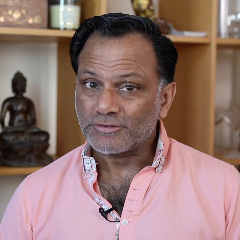You are not currently logged in. Please create an account or log in to view the full course.
Measurement Levels
- About
- Transcript
- Cite
Research Methods - Being in Control
In this course, Dr Ashok Jansari (Goldsmiths, University of London) explores points of consideration and control when designing and undertaking a scientific study. In the first lecture, we think about measurement levels by clearly defining nominal, ordinal, and interval data. In the second lecture, we think about how to construct a questionnaire, utilising open and closed questioning. In the third lecture, we think about variables by closely reviewing the role of independent, dependent, and extraneous variables within a study. Next, we think about experimental controls, going beyond just extraneous variables to think about randomisation and counterbalancing. In the fifth and final lecture, we think about demand characteristics and their impact, both as those which originate in the researcher as well as in the participant.
Measurement Levels
In this lecture, we think about measurement levels, focusing in particular on: (i) understanding the importance of measuring data and defining variables in a scientific study, as certain statistical analyses are only valid with certain types of data; (ii) nominal data, the least sophisticated of the three measurement levels discussed, with relatively incomparable categories and limited scope for statistical analysis; (iii) ordinal data, which differs from nominal data by the fact that it can be put in order, with the scale representing a measured difference between the data points; (iv) interval data, the most sophisticated of the three measurement levels, which differs from ordinal data by the fact that the differences between each point, e.g. on a scale of how tall or how heavy a person is, are equal and mean something.
Cite this Lecture
APA style
Jansari, A. (2022, March 03). Research Methods - Being in Control - Measurement Levels [Video]. MASSOLIT. https://massolit.io/courses/research-methods-being-in-control/demand-characteristics
MLA style
Jansari, A. "Research Methods - Being in Control – Measurement Levels." MASSOLIT, uploaded by MASSOLIT, 03 Mar 2022, https://massolit.io/courses/research-methods-being-in-control/demand-characteristics

